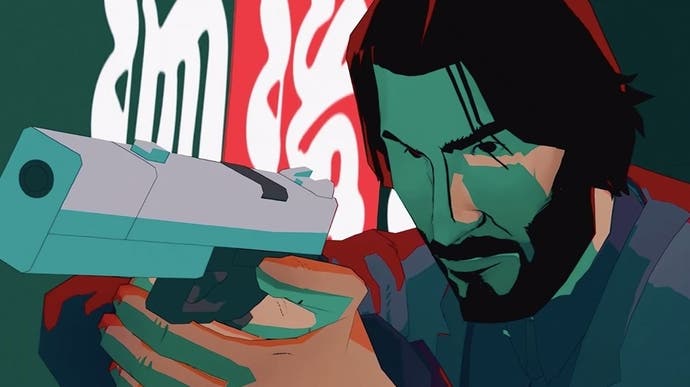Why John Wick Hex ended up a strategy game instead of a shooter
Graphite violence.
I'll be honest: when John Wick Hex was first unveiled back in May, I had my doubts. Although the trailer displayed a clear vision and original approach, I wondered how the John Wick films - notoriously fast and improvisational in style - could be translated into a slower-paced strategy game without losing... well, their John Wick-ness. How on earth would that fluid, choreographed, almost-balletic fighting style be represented in the game?
All this scepticism meant that when I tried John Wick Hex at E3, I was in for a big surprise. I found myself really engaging with the decision-making process, and gradually speeding up to the point I could dominate a room (in style) without batting an eyelid.
But how did John Wick Hex end up as a strategy game in the first place, and how did the team behind it make it work? As I discovered from speaking to designer Mike Bithell (of Thomas Was Alone and Volume), the decision to select an unexpected genre seemed to be mutual from both publisher and designer.
"Lionsgate and Good Shepherd were chatting about doing games, and John Wick immediately jumped out as something you could make a game about," Bithell explained.
"But they brought in Ben [Andac] to produce it, and specifically wanted a game that wasn't the obvious solution to the problem. They obviously got a lot of pitches for third person shooter games, but the reason I didn't pitch that was because I'm clumsy and stupid in third person shooters. I'm running around shooting a gun, you can put neon around me, you can give me a suit, dress it up as John Wick - but it's not going to feel like John Wick.
"So for me, I wanted to give players that sense of a strategic thinking, that high-level choreography. Then came the process of making that, pitching that, working with them, and then getting all of the filmmakers from the movies involved. They were telling me how John makes decisions, and then we went 'OK how do we make that into a game that explores that', and that to me seemed way more interesting than doing a shooter."
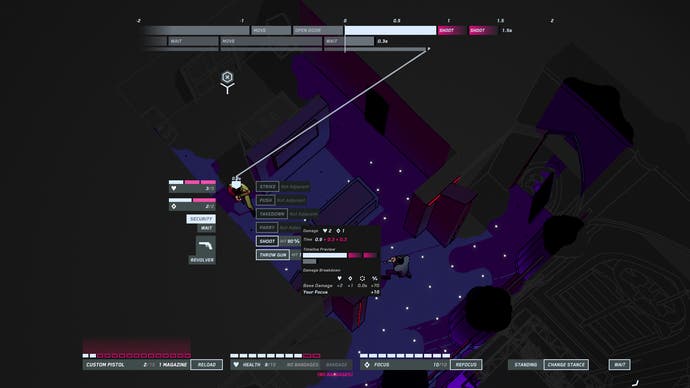
After Bithell was approached by Andac (who knew Bithell enjoyed John Wick, having watched the film with him a month before), the next stage was to build a prototype - but the strategy genre didn't instantly fit with the films, and certain adjustments had to be made.
"The initial prototype was turn-based, pretty much one-character X-COM", Bithell said. "I remember showing it to Jason Constantine who's the big head honcho of John Wick, the executive producer - basically the guy who controls the franchise. I demoed it to him and he said 'why's John Wick waiting while everyone else shoots him before he does something?'. I was bringing up monitors on other strategy games being like 'this is how it works, see?' and realised about mid-way through this speech how stupid I was being explaining to this guy.
"So we went away and that's where that timeline strategy experience really came from - the way those overlapping beats work, getting that feeling good so you're actually playing with the timing - that's when John Wick really came out of that collaboration."
The timeline Bithell described is one of the most unique aspects of John Wick Hex, and forms the true core of the game. Your planned actions, and the actions of enemies, are both shown through this timeline - creating an easy visualisation so players can manage complex situations. As actions play out simultaneously, the gameplay feels more in-the-moment than a typical turn-based strategy title, and brings the game closer to its cinematic source material.
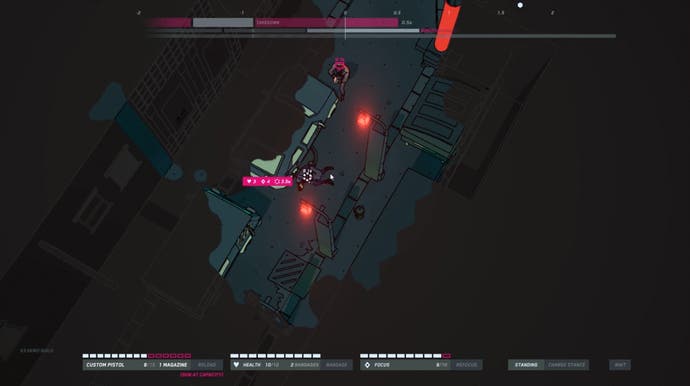
As I noticed myself when testing the game, the more you play, the more fluid it feels - with the pace at which you progress increasing as you figure out the mechanics. "Once you've been playing it for a while, your confidence increases - and while it's not quite real-time it basically speeds up," Bithell said.
"It moves at the speed of your thought".
On top of all this, there's also a replay button at the end of each level. While this was greyed out for our demo session, this will allow players to watch their level progression in real time - so to speak.
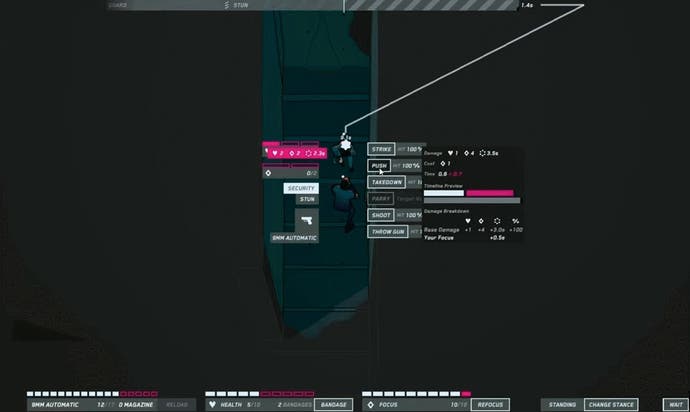
Aside from the genre choice explanation, what else did I discover about the game from Bithell? Narrative details remain tightly controlled, but Bithell did say John Wick Hex is a prequel to the first film, set before he meets his wife Helen - and he's obviously no longer a teenager. "You can find yourself a window in there," Bithell said.
The unfortunate side-effect of choosing this narrative setting is the game cannot feature a dog. The reason for this, Bithell explained, is because it would "diminish the importance" of the dog in the first film. "If it was his second dog he'd ever owned, that would undermine it," he said. "We're working with filmmakers: making sure we tell a story that supports what they've done in the movies, rather than interrupting or confusing that, has been very important."
The infamous Can You Pet the Dog? Twitter account will be very disappointed.
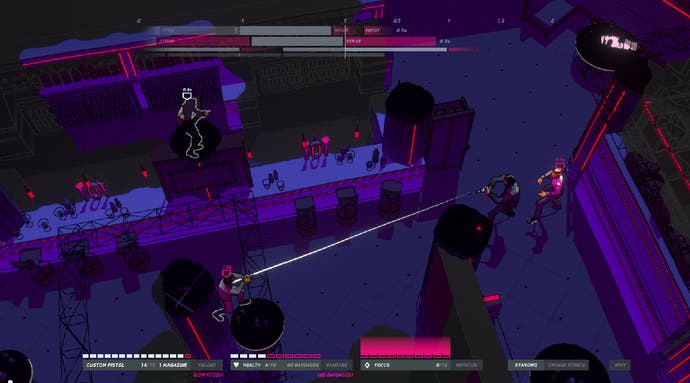
Finally, I asked the most important question of all: was Bithell surprised Keanu Reeves popped up in Cyberpunk 2077 during the Xbox briefing?
"Yeah of course I was surprised. There's been points in time where something's been announced at E3 on a game I'm working on that I've not known!", he said.
(I also asked whether Keanu will be in John Wick Hex - but casting decisions are not yet being discussed.)

Overall, I was incredibly impressed with John Wick Hex: aside from it feeling surprisingly fluid, the concept of "pressing pause" to see Wick's tactical decision-making from moment-to-moment is an intriguing premise that really works. The game has its own unique take on the franchise (including a distinctive art style), but it's also making an effort to stay authentic. And, while the demo I saw kept things simple - with just a 9mm pistol and basic enemies - the potential for more complex and varied combat scenarios is very much there. When the release date gets unveiled, I'll certainly pencil this one in the diary.
